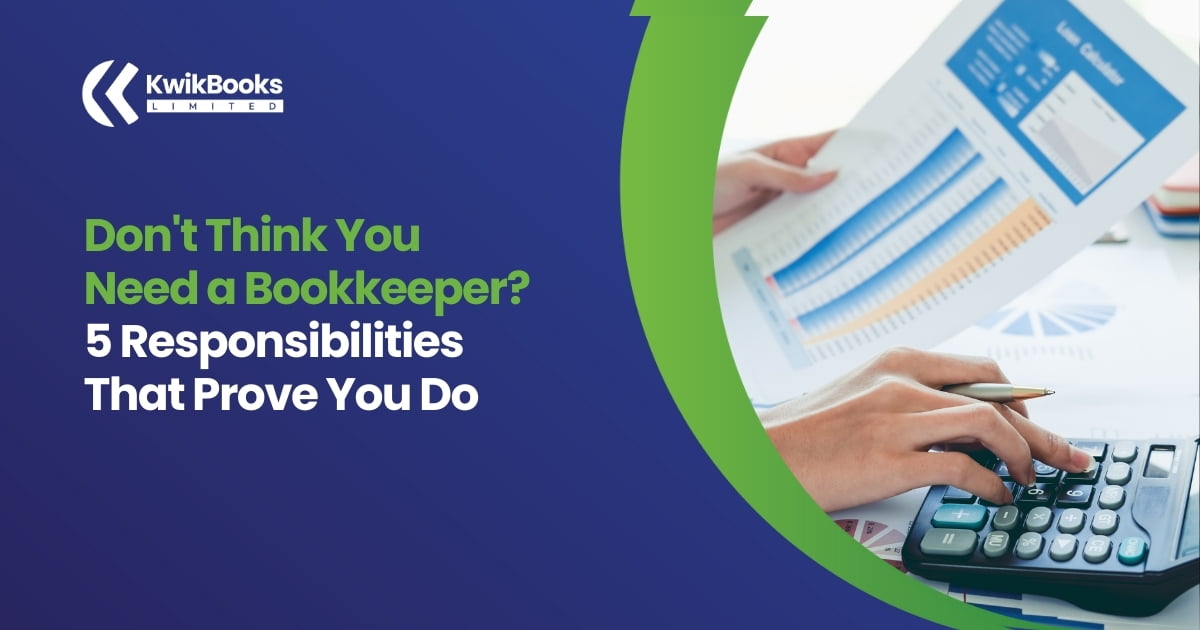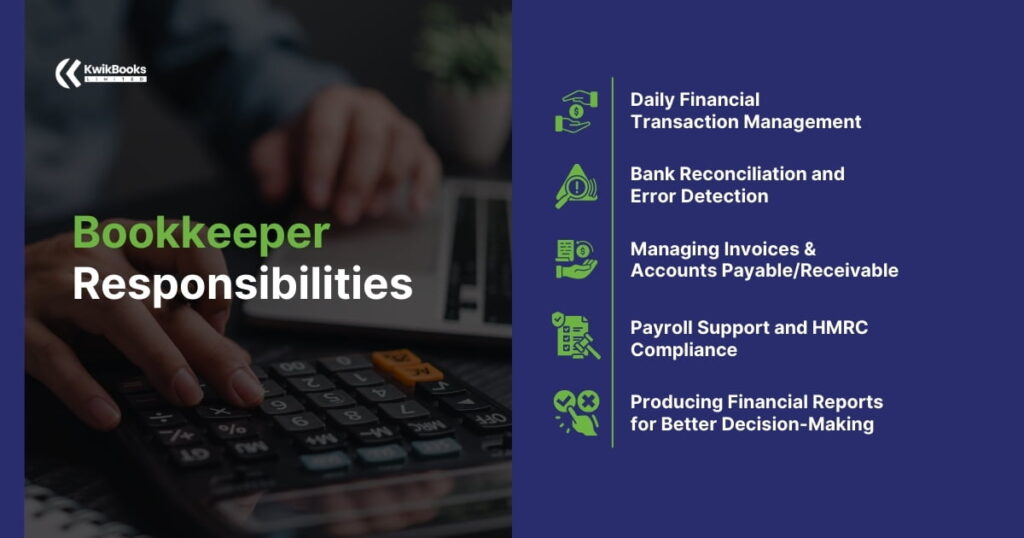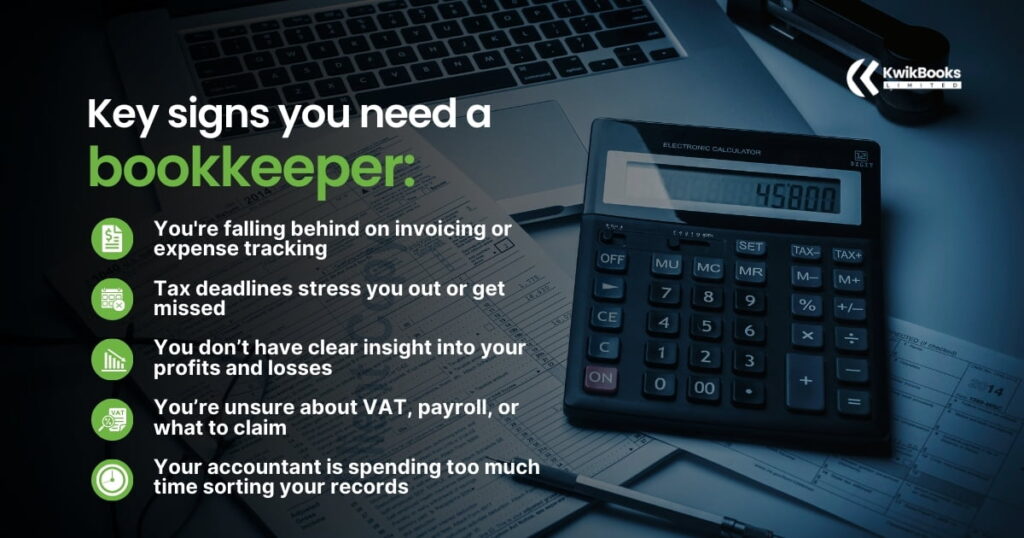
Running a business, whether you’re a sole trader, a start-up founder, or an established SME, requires wearing many hats. You juggle sales, operations, customer service, and maybe even the occasional HR task. But one responsibility that often gets pushed aside (until it becomes a problem) is managing the books.
Many small business owners assume they don’t need a bookkeeper, especially in the early stages. But the truth is, good bookkeeping isn’t a luxury, it’s a foundation. In this article, we’ll break down the core bookkeeper responsibilities and show you exactly when and why it’s time to hire one. We’ll also explore the difference between a bookkeeper and an accountant and explain how both play a critical role in business growth.

Bookkeepers serve as your financial record-keepers. They ensure that all your income and expenses are logged consistently and accurately.
This includes:
For many businesses, especially those operating with a mix of cash, online payments, and invoices, having a professional handle this is vital to prevent errors and inconsistencies. When these records are properly managed, you gain an up-to-date snapshot of your business’s financial health at any time.
Accurate records aren’t just helpful; they’re essential when preparing for tax returns, audits, or business decisions.
Bank reconciliation is the process of ensuring that the records in your books match the transactions in your business bank account.
A bookkeeper:
This function is key to spotting cash flow leaks and reducing the risk of fraud. For instance, small discrepancies left unresolved can snowball into bigger problems during quarterly VAT returns or annual tax filing.
Cash flow is the lifeblood of any business, and your bookkeeper helps keep it flowing smoothly.
Bookkeepers manage:
This oversight ensures you stay on top of your receivables and avoid late fees or damaged supplier relationships. It also improves your cash forecasting and liquidity.
Payroll is comes with serious compliance responsibilities. It’s not just about paying staff, it’s about doing it accurately and on time, while staying aligned with HMRC rules.
Your bookkeeper can:
When these tasks are done right, you avoid penalties and build trust with your employees.
Bookkeepers prepare essential reports that go far beyond bookkeeping basics. These include:
These reports give you a clear, real-time view of your business performance. Whether you’re applying for a loan, planning to expand, or trying to control costs, this data is essential.
Here’s a simple rule: if you’re spending more time managing books than running your business, it’s time to hire a bookkeeper.

Key signs you need a bookkeeper:
Even if you’re a one-person business, hiring a bookkeeper early ensures your finances start on the right foot, and stay that way.
Hiring a bookkeeper is more than a cost, it’s an investment.
Here’s how they add long-term value:
At KwikBooks, we’ve worked with business owners across industries to provide clear, proactive bookkeeping support, freeing them to lead with confidence.
Many businesses confuse bookkeepers with accountants, but they play different, complementary roles.
Bookkeeper | Accountant |
Tracks daily financial transactions | Provides strategic advice & tax planning |
Maintains ledgers and records | Prepares year-end financial statements |
Reconciles accounts and cash flow | Handles business structure & tax optimisation |
Supports payroll and VAT compliance | Submits corporation tax & financial forecasting |
In short, bookkeepers handle the day-to-day, and accountants take the big picture view. Both are essential for financial health.
If you’ve been delaying hiring a bookkeeper, ask yourself: how much is DIY bookkeeping really costing you in time, stress, and potential mistakes?
The longer you wait, the harder it gets to untangle messy financials.
At KwikBooks, we specialise in stress-free, transparent bookkeeping for businesses. We’ll help you stay compliant, save time, and get a clear picture of your finances, so you can focus on what matters most: growing your business.

Stay updated with expert bookkeeping tips and insights! Subscribe now to receive updates directly in your inbox for your business.
* We never spam your email
KwikBooks Limited 1 Hadley Court, 223 Ballards Lane, London, N3 1NB,
Monday - Friday 09:30 AM - 05:30 PM
© 2026 All Rights Reserved.